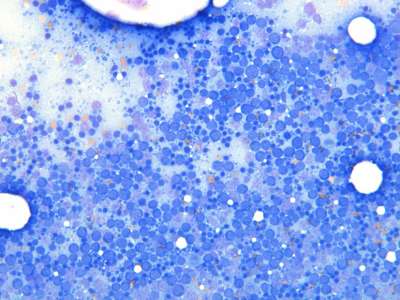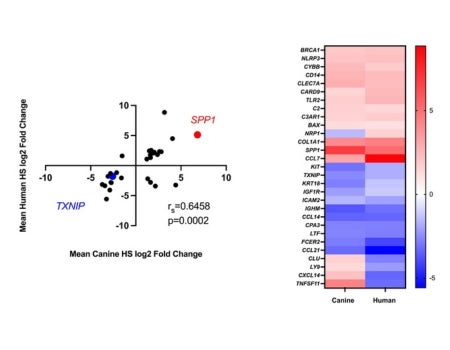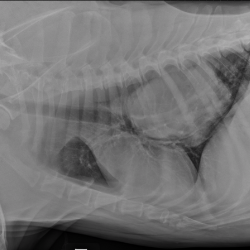Our Research
Our current areas of interest include:
Preclinical development of cutting-edge CAR T cells for canine cancer patients.
Penn Medicine has been at the forefront of developing lifesaving CAR T therapy for people diagnosed with B cell cancers. Studies at Penn Vet have revealed that CAR T cells are a safe approach for dogs diagnosed with B cell lymphoma with early signs of clinical activity. Observations during these trials provided the rationale for manufacturing next generation canine tandem CAR T cells and work is ongoing in the Atherton Lab to optimize these promising constructs prior to assessment in the veterinary clinic. We are concurrently designing CAR T cells capable of targeting sarcomas and other less frequently observed hematologic cancers to improve the outcomes of our own patients and help inform early-stage trials of rare cancer types in human patients.
Interrogating the immunologic tumor microenvironment (TME) of hematologic malignancies
Histiocytic sarcoma is a deadly cancer in dogs and people with limited treatment options. Our multi-species work revealed the importance of T cells in shaping the prognosis of patients diagnosed with histiocytic sarcoma using parallel multiplexed assays. This discovery lays the foundations for developing T cell therapies for patients of both species and research in the lab is continuing to define targets for T cell therapy and mediators of immune suppression that need to be overcome to enable successful immunologic interventions. The Atherton Lab is also actively investigating the immune TME of canine mast cell tumors and high-grade lymphomas to help dissect the interaction of the immune system with cancer cells in these diseases.
A roadmap to establish adoptive cellular therapy in the veterinary clinic
In parallel to our preclinical research and development pipeline and investigations of the immune TME we are performing a first in dog clinical trial assessing the safety, activity, and immunomodulatory properties of bendamustine for high grade canine lymphoma. Pre-conditioning treatment with drugs including bendamustine have proven vital for the activity of CAR T cells in human trials thus we are working to characterize this drug in veterinary oncology. Ongoing collaborations with the Penn Medicine are underway to develop a customized toolbox of assays to monitor CAR T cell safety and activity in our veterinary patients. Collectively these projects will allow a smooth transition of our bespoke CAR T products into comprehensive clinical trials assessing their safety and activity.



